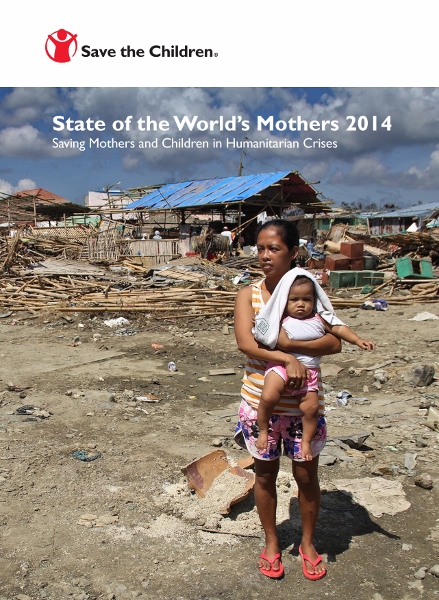State of the World’s Mothers 2014
DUSHANBE, TAJIKISTAN – Tajikistan is ranked 134th on Save the Children’s 2015 Mothers’ Index – an annual ranking of the most enabling and most challenging places in the world to be a mother. The country is striving ahead of neighboring Afghanistan and Pakistan, while pacing itself to stay on par with its regional contemporaries Kazakhstan and Uzbekistan.
The index is a part of the agency’s annual State of the World’s Mothers report, now in its fifteenth edition, comparing 178 countries around the globe, showing which are finding success – and which are facing difficulties – in saving and improving the lives of mothers and their children. Overall, Finland was ranked the best place to be a mother for the second straight year and Somalia came in last.
The report shows that maternal and child mortality in the most demanding countries of the world can be dramatically cut when efforts are made to improve services for mothers and children. Over the past 15 years, Tajikistan can be proud that it has seen maternal mortality cut by more than half, child mortality decreased by one third, expected years of schooling increased by 1.4 years, and gross national income per capita as well as percentage of women in national increase more than five-fold.
“Tajikistan has made significant progress in maternal health and inclusion of women into the leadership positions in country over the past 15 years,” says Thomas Wimber, Country Director for Save the Children in Central Asia. “These are important improvements in order to raise the overall status of women, mothers and girls across the country. Save the Children, too, has been working closely with communities and the Government of Tajikistan to empower women to save and invest their money towards better health facilities, schools, food diversity and entrepreneurial endeavours.”
This year’s State of the World’s Mothers report focuses on mothers in humanitarian crises in order to better understand and respond to their needs. Mothers in humanitarian crises are often faced with many obstacles to keep their children healthy – such as physical and economic access to essential services – while their own vulnerability to poverty, malnutrition, sexual violence, unplanned pregnancy and unassisted childbirth greatly increases.
“Tajikistan is vulnerable to severe winter storms and erratic seasonal patterns, which have become more unpredictable in recent years because of climate change. It has caused widespread losses in crops, livestock and damages to other assets in the worst-affected areas, which in turn can cause a spike in malnutrition, school dropouts, and a decrease in usage of paid health services,” said Thomas Wimber.
To protect mothers and children in the aftermath of disasters, Save the Children is calling upon States and civil society to:
Ensure that every mother and newborn living in crisis has access to high quality health care;
Build the resilience of health systems to minimise the damaging effects of crises on health;
Develop national and local preparedness plans tailored to respond to the specific needs of mothers, children and babies in emergencies;
Ensure adequate financing and coordination to timely respond to mothers and children’s needs in emergencies.

 Central Asia
Central Asia